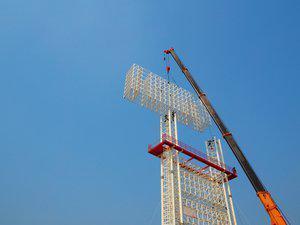Recent Blog Posts
Recent Ruling Protects Aviation Crash Victims by Requiring State Law, Not Federal Law, to Govern Trials
After a long-awaited Third Circuit Court ruling in the case Sikkelee v. Precision Airmotive Corp., et al., aviation accident victims and their families now have more protection from the negligent acts of airline and aircraft manufacturers. Offered through a limitation on the Federal Aviation Act (FAA Act), the ruling holds that the Federal FAA Act does not purport governance over the design or manufacturing of aircrafts, nor does it supply a comprehensive standard of care. As such, aviation product liability lawsuits should be governed and ruled upon based on local state law standards and regulations, rather than federal laws, regulations, and standards of care.
Background on Sikkelee v. Precision Airmotive Corp
The lawsuit arose from a 2005 airplane accident in which a Cessna 172N Skyhawk crashed immediately after takeoff. The pilot suffered fatal injuries and burn injuries. His wife filed a wrongful death lawsuit with the Middle District of Pennsylvania. She alleged that product defect and negligence, including the failure to warn, were the direct causes of her husband’s death. Specifically, she claimed that the crash was caused by power loss or malfunction of the engine’s carburetor, which was not manufactured by Lycoming, the original manufacturer of the engine, but was allegedly compliant with the manufacturer’s specifications.
Plane Crash Injuries and Wrongful Deaths – Your Risks and Right to Fair Compensation
Statistically speaking, travelers are safer when flying than when driving. In fact, the National Safety Council made a side-by-side comparison of the two and determined that a person’s odds of dying in a motor vehicle crash is 1 in 98 while their odds of experiencing a fatality in an airplane crash is just 1 in 7,178. So why, then, do humans fear flying so much? Experts believe it has something to do with the often catastrophic results of plane accidents.
A Single Crash Can Cause Hundreds of Injuries
Although they do not occur often, the results of plane crashes are usually devastating. Take, for example, the 20131 crash of Asiana Airlines Flight 214, which killed two passengers and injured 307 members of the passengers and crew. Or the 2001 crash of an Airbus A300 that killed 265 people just moments after takeoff. And then there was the 1977 collision of two Boeing 747s (KLM and Pan Am) that killed 583 people – one of the most devastating accidents to date.
Falling Objects a Fatal Threat for Construction Workers
 Each year, around 4,000 construction workers are fatally injured on the job. Falling objects – tools, equipment, debris, and more – are responsible for approximately eight percent of those deaths, making them one of the most common causes of worker fatality. They are so common, in fact, that the Occupational Safety and Health Administration (OSHA) have named them as one of construction’s “Fatal Four.” Yet records from the agency show that failure to provide protection from injury is one of the most commonly cited violations at work sites throughout the United States.
Each year, around 4,000 construction workers are fatally injured on the job. Falling objects – tools, equipment, debris, and more – are responsible for approximately eight percent of those deaths, making them one of the most common causes of worker fatality. They are so common, in fact, that the Occupational Safety and Health Administration (OSHA) have named them as one of construction’s “Fatal Four.” Yet records from the agency show that failure to provide protection from injury is one of the most commonly cited violations at work sites throughout the United States.
Failure to Provide Protection
While OSHA provides rules and guidelines on how to effectively keep workers safe on the job, contractors, foreman, and other overseeing personnel often fall short when it comes to following through. This can be by not providing proper training (i.e. teaching workers how to safely organize and tether tools) or by not providing the proper equipment to ensure safety protocols are followed.
Ladders and Scaffolding Accidents Cause Thousands of Deaths and Injuries in Construction Injury Each Year
 Designed to provide temporary stability, help to ensure tools and equipment are within reach, and provide greater flexibility when working at great heights, ladders and scaffolding are used by approximately 2.3 million construction workers (65 percent). But these safety devices can also be the very items that cause injury or death when they are not properly used or maintained. Because negligence often plays a big role in ladder and scaffolding injuries, and because the problem amounts to thousands of deaths and injuries each year, it is critical that workers know what protections they have under the law.
Designed to provide temporary stability, help to ensure tools and equipment are within reach, and provide greater flexibility when working at great heights, ladders and scaffolding are used by approximately 2.3 million construction workers (65 percent). But these safety devices can also be the very items that cause injury or death when they are not properly used or maintained. Because negligence often plays a big role in ladder and scaffolding injuries, and because the problem amounts to thousands of deaths and injuries each year, it is critical that workers know what protections they have under the law.
Prevalence of Ladder and Scaffolding Injuries Cause for Concern
Estimates from the Occupational Safety and Health Administration (OSHA) indicate that ladders and scaffolding cause approximately 4,500 worker injuries and 50 worker deaths each year. The cost to employers for time lost is thought to be around $90 million, but it is the cost to workers that makes the prevalence of ladder and scaffolding injuries so concerning. For them and their families, life may never look the same.
Medical Errors Now Third Leading Cause of Death in United States
 There is an insidious, silent killer in the United States – one that patients are often oblivious to, doctors and hospitals refuse to talk about, and is now considered the third leading cause of death in the U.S., placing it just below cancer and heart disease. In total, it claims anywhere from 250,000 to 400,000 deaths per year, yet there is no system in place to effectively track or prevent these deaths. Even more disturbing is that this killer – otherwise known as medical malpractice – occurs at the hands of those who are supposed to heal.
There is an insidious, silent killer in the United States – one that patients are often oblivious to, doctors and hospitals refuse to talk about, and is now considered the third leading cause of death in the U.S., placing it just below cancer and heart disease. In total, it claims anywhere from 250,000 to 400,000 deaths per year, yet there is no system in place to effectively track or prevent these deaths. Even more disturbing is that this killer – otherwise known as medical malpractice – occurs at the hands of those who are supposed to heal.
What You Do Not Know Can Hurt You
Sick people go to hospitals to get better, but hundreds of thousands will never leave. Victims of poorly coordinated care, preventable infections, system failures, falls, or any number of other, preventable causes, these patients will die a wrongful death at the hands of the doctor, nurse, or surgeon treating them. No one – not even their family – may fully understand the death because those same system failures that allowed the death are often used to cover up its true cause and nature. And therein lies one of the major contributing factors to this American epidemic.
Crane Accidents Caused by Construction Negligence Can Have Catastrophic Consequences
 The use of power equipment and heavy machinery have enabled faster, easier work for construction companies, which has, in turn, increased their profits and productivity. Unfortunately, foreman, subcontractors, and other responsible individuals still cut corners, fail to follow all safety regulations, and put both workers and the general public at risk. Construction crane accidents can especially dangerous and often have catastrophic consequences, yet they remain one of the most common types of construction accidents in the United States.
The use of power equipment and heavy machinery have enabled faster, easier work for construction companies, which has, in turn, increased their profits and productivity. Unfortunately, foreman, subcontractors, and other responsible individuals still cut corners, fail to follow all safety regulations, and put both workers and the general public at risk. Construction crane accidents can especially dangerous and often have catastrophic consequences, yet they remain one of the most common types of construction accidents in the United States.
Crane Accidents Occur at an Alarming Rate
In the United States, approximately 125,000 cranes are currently being used in the construction industry. Another 80,000-100,000 cranes are thought to be in use in the general and maritime industries. All of them are regulated with rules regarding when and how they should be operated and secured; yet collapses still happen at an alarming rate.
Understanding the Legal Protections for Injured Construction Workers
 Of all the jobs in existence, construction workers have one of the most dangerous. On a daily basis, they are exposed to biohazards like dust and asbestos, and prone to injuries from power tools, heights, equipment, electricity, environmental hazards, and heavy falling objects. To reduce the risk of injury from these hazards, there are numerous safety policies and procedures that contractors, property owners, foreman, construction firms, and even the workers themselves must follow. Unfortunately, some take shortcuts (otherwise known as construction negligence) and put countless lives at risk.
Of all the jobs in existence, construction workers have one of the most dangerous. On a daily basis, they are exposed to biohazards like dust and asbestos, and prone to injuries from power tools, heights, equipment, electricity, environmental hazards, and heavy falling objects. To reduce the risk of injury from these hazards, there are numerous safety policies and procedures that contractors, property owners, foreman, construction firms, and even the workers themselves must follow. Unfortunately, some take shortcuts (otherwise known as construction negligence) and put countless lives at risk.
Nearly 100 Construction Workers Fatally Injured Each Week
According to statistics from the Occupational Safety and Health Administration (OSHA), 4,679 workers were fatally injured on the job in 2014. On average, that amounts to approximately 90 deaths per week, or more than 13 deaths daily. Of those, only 17 percent are construction contractors.
Hospital TV Show Violates Patient Privacy
The U.S. Government has announced it reached a settlement with a New York Hospital over claims the hospital allowed television crews to violate patient privacy. According to the announcement, New York Presbyterian Hospital will pay $2.2 million in fines for allowing crews of ABC television series “NY Med” virtually “unfettered access” to private patient information and for filming patients in distress without their consent. The HHS Office of Civil Rights called the violations “egregious.” As part of the settlement, the hospital will be monitored for two years to ensure that it fully complies with patient privacy.
Doctors Who Receive Money From Drug Companies Prescribe Their Drugs More Often
According to an analysis by Pro Publica, doctors who receive money, gifts and meals from drug companies write prescriptions for name brand drugs at a higher rate than doctors who do not receive money or gifts. The highest prescribing percentages went to doctors who received more than $5,000 in money or gifts. Though doctors have long disputed a connection between drug company payments and prescribing habits, this analysis provides proof. If this were to happen in a different context, it might be considered bribery or a payoff. But because of the outsized influence and campaign contributions of pharmaceutical and physician groups, it is just “incentive.”
Despite Decrease in Number of Recalled Children’s Products, Effectiveness of Recalls Remains Subpar
 Children are meant to be protected – parents and caregivers do their best, but are often unaware of the risks/damages which manufacturers are keenly aware of. More should be done to protect children, particularly when it comes to the manufacturing industry. In fact, there was a time when more than 600,000 children visited the emergency room because of injuries caused by dangerous products (the year 2000). Since that time, laws have been passed, tracking and monitoring have taken place, and improvements have been made. But, according to recent data from Kids in Danger (KID), there is still much work to be done.
Children are meant to be protected – parents and caregivers do their best, but are often unaware of the risks/damages which manufacturers are keenly aware of. More should be done to protect children, particularly when it comes to the manufacturing industry. In fact, there was a time when more than 600,000 children visited the emergency room because of injuries caused by dangerous products (the year 2000). Since that time, laws have been passed, tracking and monitoring have taken place, and improvements have been made. But, according to recent data from Kids in Danger (KID), there is still much work to be done.
Injuries and Number of Recalls Decreased
Of the 225 products recalled in 2001, more than half were children’s products (118). On average, that was about two new recalls per week. Linked to 672 child injuries and two deaths that year, toys accounted for 41 percent, 23 percent were nursery items, 14 percent were clothing items, and sports equipment accounted for 23 percent of child product recalls. Totals from 2014 show the industry has made massive improvements, with a 95 percent decrease in injuries since the passing of Danny’s Law in 2008 (36 in 2014). The number of products recalls has also decreased, and only 24 percent of the recalls in 2014 were of products made for children (68 recalls in total) – the lowest since KID began tracking recalls.

 312-605-8800
312-605-8800




 312-605-8808
312-605-8808






